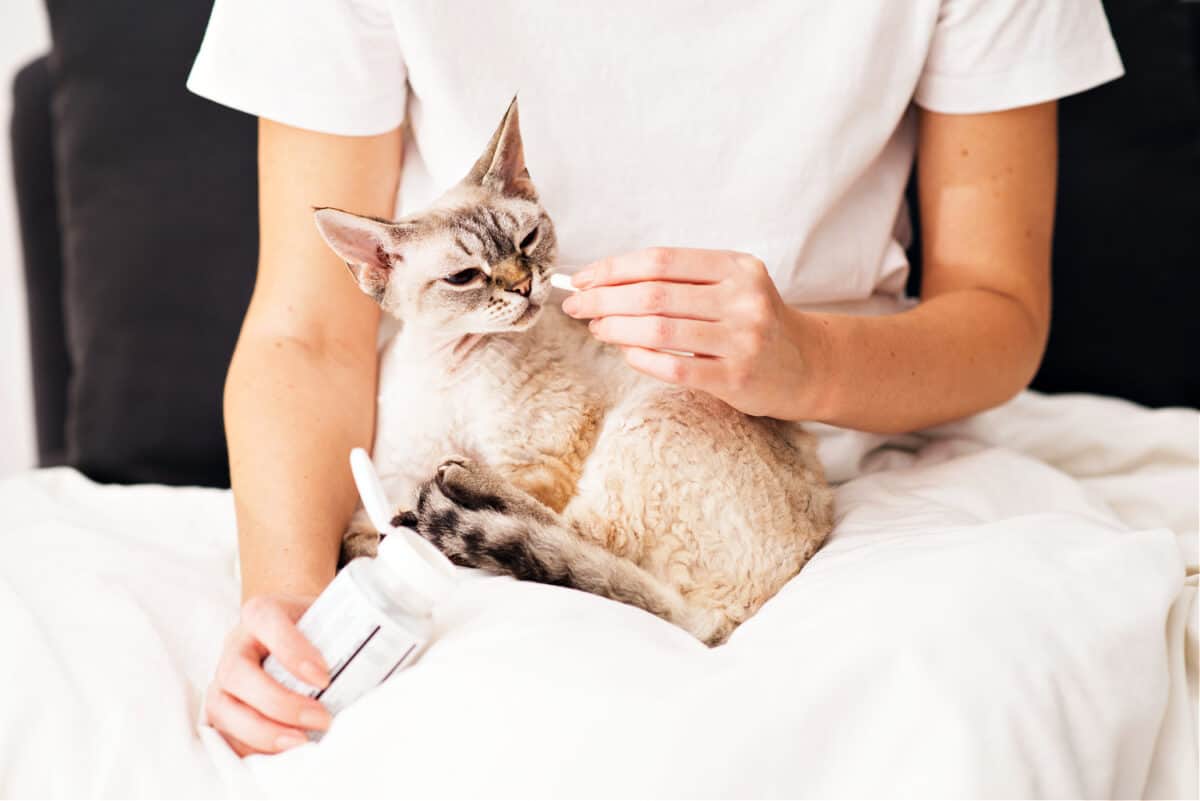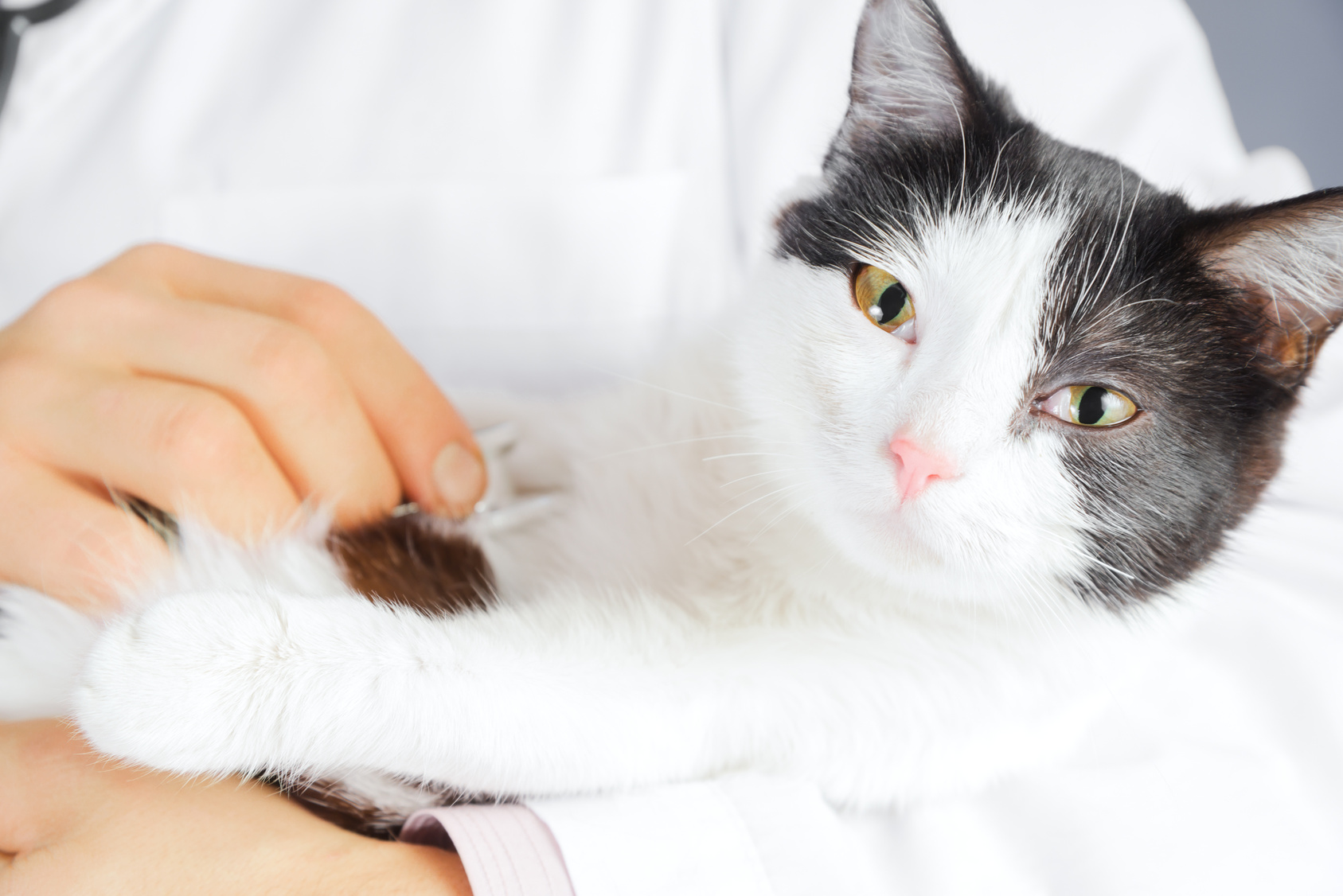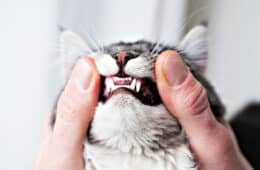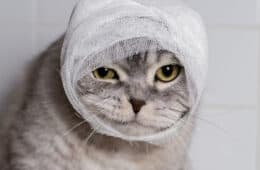Should you give your cat probiotics? It's a question that many cat owners ponder. Probiotics are known to aid in digestion and promote good bacteria in the gut. They can be especially useful when antibiotics have disrupted the balance of bacteria in your cat's system.
But how do you know if your cat needs them? What are the signs to look for? In this article, we'll explore the reasons why a cat might need probiotics, how they work, and where to find them. We'll also hear from veterinarians and cat owners who have firsthand experience with probiotics.
Whether you're dealing with specific health issues or just want to boost your cat's overall well-being, this article will guide you through the essential information you need to make an informed decision.
Understanding Probiotics: A Guide to Feline Health
Introduction to Probiotics
When talking about feline health, probiotics often come to the forefront. What are probiotics?
They are supplements with live bacteria or fermentation products. They aren't just for humans; many pet supplements contain them as well.
Probiotics and Digestive Health
Probiotics play a critical role in keeping the digestive tract healthy. This health, in turn, affects the whole body. It might seem strange to promote bacteria growth in the digestive system.
But like cholesterol, there's a good kind and a bad kind of bacteria.
Good Bacteria vs Bad Bacteria
Probiotics feed the good bacteria. Sometimes, they even add new groups of good bacteria. Good bacteria keep the body healthy. Bad bacteria can cause problems.
Antibiotics vs Probiotics
Antibiotics, on the other hand, kill bacteria. They can’t tell the difference between the good and bad and will wipe out both.
When that happens, added probiotics may be needed to replace the lost good bacteria to stay healthy.
Expert Insights: Dr. Cathy Alinovi's Perspective
Dr. Cathy Alinovi has a rural veterinary practice in Pine Village, Indiana. She says 85 percent of all ailments she sees at her clinic can be improved or cured by a change of diet.
The intestines make up 65 percent of the body’s health systems; probiotics keep things in balance by providing beneficial bacteria that live in the intestines.
There is even prebiotics that feeds the probiotics to strengthen the whole system. Probiotics get the food digested better as it moves through digestion.
SIGN UP FOR THECATSITE'S EMAIL UPDATES >

Why Do Cats Need Probiotics?
Aging and Digestive Health in Cats
As a cat ages, its digestive system may not work as efficiently. It may not receive all the benefits of the food it eats. This is one reason why a cat may need added probiotics.
Antibiotics and Probiotics
Repeated use of an antibiotic can become less effective. Bacteria adapt. Probiotics offer an alternative. They don't focus on just one part of the body or one type of infection.
Probiotics work as part of the defense system. They help prevent infections and illnesses. Research even shows that probiotics may help with irritable bowel syndrome, urinary tract infections, yeast infections, and other digestive problems.
Stress and Imbalance
Stress is another reason the body may get out of balance. A move to a new home, a new child, the human’s new work hours—all can stress a cat. Even a stray in the neighborhood can upset a cat’s stomach.
Member Experiences
Member and former team member, ldg, deals with chronic feline health issues on a daily basis:
My cats are mostly older, all feral rescues. No one other than my FIV+ boy has had poop problems.
His holistic vet put him on probiotics among a number of things (he had chronic diarrhea), so he's been getting probiotics daily since October 2010.
Several of my kitties have immune-related issues, and Lazlo's recovering from cancer. But I've got all of them on probiotics daily, and intend to continue to do so.
Member ldg from TheCatSite.com Forums
Dramatic Results with Probiotics
Sometimes, supplementing a cat's diet with Probiotics can have dramatic results. Our member Carolina used a yeast-based probiotic to treat her cats for a Clostridium infection.
Under close veterinary care and monitoring, the cats received a yeast-based product called Saccharomyces boulardii.

Click here to view this product on Amazon.
Sharing her experience in our forums, Carolina shares that after only one dose, the very next morning her cat Bugsy had solid poop, and her cat Mac had cow's pie poop.
From the second dose on, all of them had solid poop.
What Are The Signs My Cat Needs Probiotics?
Gas, very smelly poop, constipation, diarrhea, sluggishness, or skin problems in your cat could signal a need for probiotics.
These signs might mean bad bacteria are winning over good bacteria. Your veterinarian can evaluate these symptoms and help decide if probiotics could help your cat.
Where Can I Find Cat Probiotics?
From Cat Food to Supplements
Some cat food manufacturers are incorporating probiotics into the food ingredients. Supplements are used especially for cats who have shown dietary problems like the inability to absorb all the nutrients in food.
Online retailers offer a wide variety of choices. Supplements can come in powder, liquid, paste, tablet, or capsule form.
Simple Solutions and Human Probiotics
Dr. Alinovi suggests a simpler way: give kitty kefir or yogurt with “active cultures.” If your cat can't have dairy, you can still find suitable supplements.
Even human probiotics like yogurt can be good for most cats.
Final Thoughts: Embracing Probiotics for Cat Health
Easy to use and affordable, probiotics can boost your cat’s life. "It's one of those things you can't go wrong with. It won't hurt and can be a great help to your cat's overall health," says Dr. Alinovi.
Understanding the signs and knowing where to find probiotics enables you to make an informed choice for your cat’s well-being.
SIGN UP FOR THECATSITE'S EMAIL UPDATES >
This article includes quotes from established members of TheCatSite.com.
Not a member yet? Read more about why you should become an active member of the largest online community of cat lovers.
Comments? Leave them using the comment section below. Questions about your cat? Post them in the cat forums.
The forums are the only place where you can get quick answers to your cat-related questions. Please do not use the comments section to ask questions about your cat.
Note: We may get commissions for purchases made through links on this page.




7 comments on “Should I Give My Cat Probiotics? [Answered]”